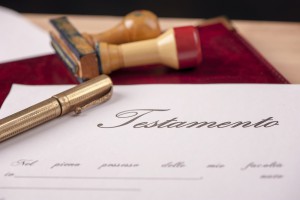When a last will and testament is created, an executor begins to play an important role in carrying them out. During and after probate, an executor provides critical functions. This is why you should carefully consider who you will select as your executor.
An executor is bound by fiduciary duty, meaning that he or she is required to adhere to high standards when administering the estate. During the administration phase, an executor will gather information, pay debts, and deal with expenses and taxes associated with closing the estate. Since the executor manages important responsibilities like filing tax returns and handling distributions from the estate.
Some of the factors that might preclude an individual from serving as an executor include history of felony convictions, being a non-resident, being found unsuitable by the judge at his or her discretion, or the naming of a corporation not authorized to serve as a fiduciary.
Be sure to speak with your estate planning specialist about how to narrow down your search for an executor. Understanding the role this person plays in managing your estate is essential for success in the long term.
